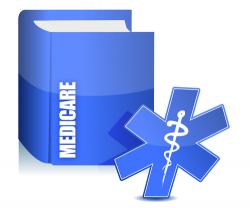As a patient, care giver, researcher and a human being, here ‘s my “take” on what physicians and hospitals, and all the entities that work with them like health plans, ACOs , etc. need to do to effectively increase patient engagement in 2013 and beyond.
As a patient, care giver, researcher and a human being, here ‘s my “take” on what physicians and hospitals, and all the entities that work with them like health plans, ACOs , etc. need to do to effectively increase patient engagement in 2013 and beyond.
- Act like you are glad to see them (patients) and have time for them… no matter how busy you really are
- Say something relevant to suggest that you actually remember who they are – don’t get this one wrong
- Ask how they have been since their last appointment and what brings them in to see you today
- Probe for the patient’s ideas as to the cause of their complaints and what they would like you to do for them
- Listen to what the patient has to say without interruption – ask clarifying questions
- Tell the patient what you recommend doing in the way of tests, treatments and new medications…and explain why you are making those recommendations – ask if that’s ok with the patient…if it’s not ok find out why
- Pay attention to patient-initiated cues (loss of a job or loved one, sighing…) – they probably are a call for help
- Express empathy and support to patients
- Find out what will motivate the patient and what they believe can achieve when it comes to care planning
- Ask about or suggest ways that you and your team can support patients long-term care plans
The challenge most physicians and other providers face is not one of how to engage patients. Most of us patients (people) are already engaged to the extent we:
- went to the bother of calling your staff to make an appointment (never a pleasant experience)
- took time off work to travel to your office
- wait an average of 24 minutes to see you
- sit for 24 minutes thinking about what we want to talk with you about and how you are too busy to listen
Rather the challenge for providers is how to be engaging to patients. Health care after all is an intensely personal and social interaction between human beings. My apology to all the health information technology folks who suggest EMRs, web portals and smart phone health apps are the best way to engage patients (they are not). I for one am convinced that people would be more engaged in the care (they way providers expect and prefer) if only providers were more engaging…lack of time and reimbursement notwithstanding.
I am sure I have missed something so please feel free to add to the list.







